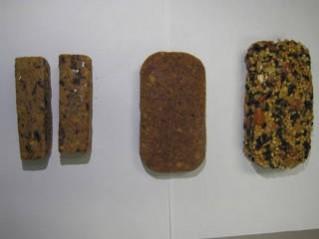Let's face it, NASA's Orion space vehicle does not have enough space to stock up a lot of food supplies required to make it livable like the artificial satellite International Space Station (ISS). So NASA scientists have figured out a way to sort the issue out. And boy, it is novel!
According to a NASA statement, unlike the astronauts travelling on the Orion, the crew members in the ISS have the privilege of choosing from around 200 food items.
The Orion spacecraft is built to explore the far reaches of the Sol System; the manned space mission -- Orion Exploration Mission 2 (EM2) -- is scheduled to take flight between 2021 and 2023 and last around 10 to 14 days.
It will involve four crew members. It is crucial for the astronauts to have a balanced diet to maintain their health in order to better carry out their tasks. Orion will be flying to deep space destinations, hence the astronauts cannot depend on a resupply spacecraft replenishing their dietary requirements or even trash clearance.
The supplies carried by the astronauts will have to be brought back to Earth, we're assuming as trash. Carrying extra supplies is not an option, as it will increase the mass of the space vehicle resulting in greater fuel requirement and energy usage.
But scientists have come up with a solution to this problem: They are creating a range of food bars that can be consumed by crew members during their missions.
Food bars and shakes are often the preferred breakfast anyway, so scientists focused on developing a calorific substitute for the morning meal, which would aid in nutrition and in mass reduction of the spacecraft.

"When you have 700 to 900 calories of something, it's going to have some mass regardless of what shape it's in, so we've taken a look at how to get some mass savings by reducing how we're packaging and stowing what the crew would eat for breakfast for early Orion flights with crew," said Jessica Vos, deputy health and medical technical authority for Orion.
"When you think about multi-week missions in Orion, having just one package for breakfast items for crew will help us limit the space we need to store them," she added.
The astronauts on the ISS have the option of eating from multiple food packages with rehyderatable thermostabilized meals.
The food bars -- of various flavors like barbecue nut, orange cranberry, ginger vanilla, etc -- these will be stocked on the Orion in bulk so that astronauts can choose what they want for their breakfast, all the while minimizing the space taken by food stores.
Producing high-calorie food bars for the crew, with nutritional balance and taste is a challenging task for scientists.
"There's no commercially-available bar right now that meets our needs, so we've had to go design something that not only works for the crew, while trying to achieve a multi-year shelf-life," said Takiyah Sirmons, a food scientist with the Advanced Food Technology team at NASA's Johnson Space Center in Houston.
Scientists believe that tasteful and plentiful food will be a moral booster for astronauts operating Orion missions.
These food bars are produced by NASA's Human Research Program and were tested by astronauts in Human Exploration Research Analog (HERA), a three-story habitation by NASA situated at the Johnson Space Center, which serves as an analog for remote conditions and isolation while examining different scenarios.

















